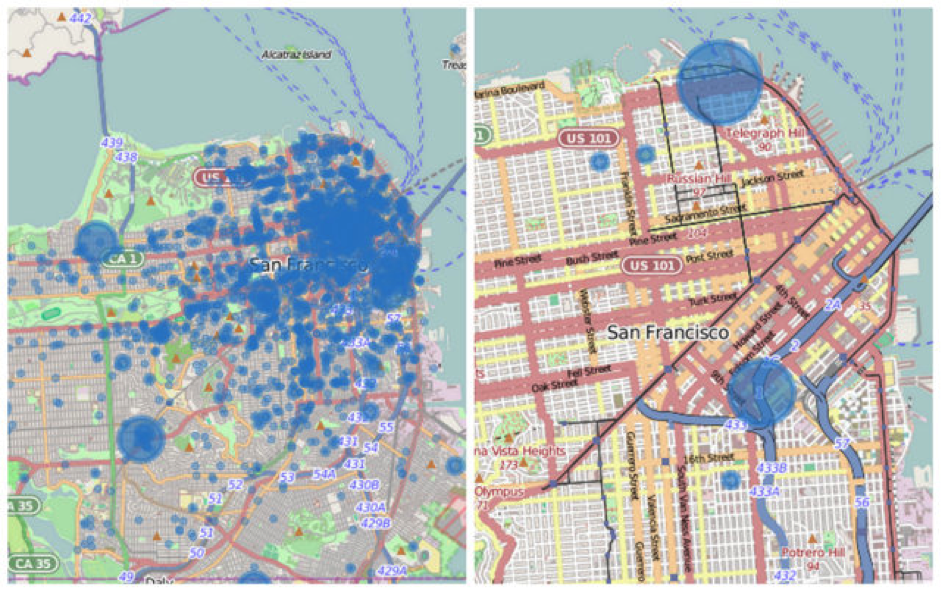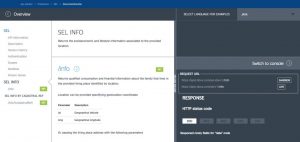Airbnb, PayPal, Alibaba, Uber… It doesn’t matter what they’re called. Internet based companies fight daily to become more competitive. The question is… how do they do it? One of the tools they use to win the battle against their rivals is the Application Programming Interface (API), algorithms that manage large-scale data and open up new business opportunities.
If you want to find out what an API is or the most important benefits for a company, see the special on Innovation Edge APIs.
Any company, not only those who have their ‘modus vivendi’ on the Internet, can use these applications to extract valuable information from their consumers. Using the technology to create new business, not just to obtain personal information. Nowadays, large digital companies use APIs with several clear goals:
APIs extract personal information from consumers
They’re algorithms that are used to store personal information about users and their behavior when they interact with a platform or a mobile application, for example. Dates of birth, personal tastes, interests, consumption or movement patterns in a city … This data is used to improve services, products or even to create new businesses.
Two perfect examples of this use are Uber, the transport company that supplies drivers using a mobile application, and Airbnb, the company that provides cheap lodging in cities around the world.
They’ve received a lot of criticism in the United States, and the way in which they use the data has not gone unnoticed by authorities such as the US Federal Trade Commission (FTC), which investigates whether the monitoring of their users and the following of their service recommendations comply with the law.
APIs can be used to forecast users’ consumption patterns
Data accumulation has many purposes, but one of them is to get ahead of consumers’ interests and tastes. Following on with two examples:
1. – Airbnb has already admitted that they work with algorithms to place advertizing based on image quality. The apartments that have the best photos or that best adjust to customer profiles are given priority. Collecting data, recognizing images and crossing consumption patterns would be impossible without using APIs.
However, Airbnb has been working for some time with algorithms that predict the behavior of their users and look for matches with the company’s lodging availabilities. These types of predictive models have increased the site’s total number of bookings by 4%.
2.- Meanwhile, Uber uses this information to create predictive models to find out, for example, what your destination will be when you use their transport service. Their data team uses Bayesian statistics to achieve a model that is able to determine the destination 75% of the time.
The model is based on three key aspects:
– The destination history of each user.
– The behavior of other users.
– The popularity of the destinations.
These combined factors enable the model to predict that a user with a specific behavior who uses a Uber driver to go to a specific part of the city could go to a specific destination.
How did Uber manage to achieve this high percentage? Thanks to using APIs. The company anonymously accumulated the driving patterns of more than 3000 professionals in the city of San Francisco at the beginning of 2014. Each of the drivers, upon receiving the destination information, was in charge of filling out a field with that information, which enabled them to collate the success of the model.
An algorithm can also be used to anonymously accumulate information about users’ movement patterns, the places they go, what time they go there… The idea of the Uber data team is to find out more about consumers and offer services that adjust to their needs. This wouldn’t be viable without APIs.

Maintaining your hold over the market and your competitors
One of the markets in which APIs are used to keep competitors at bay, or enter with strength, is the mobile payment market. PayPal, a true industry giant, is watching how new players such as Stripe are entering the market with strength and being highly praised.
One of Stripe’s strong points is its API, carefully focused towards the work of the developers which enables for a simple and intuitive payment gateway which is very easy to integrate in any e-business and avoids the loss of buyers. This is one of the reasons why they are gaining ground and why PayPal had to launch a new interface that was more flexible and functional, something that the community of developers had been complaining about for quite some time.
Alibaba is the largest e-commerce company in the world, and data management has become their main priority. Alibaba controls more than 80% of the world’s e-commerce, selling more products than eBay and Amazon together. Obviously, they have to process a very high volume of data, and none of this would be possible without using Application Programming Interfaces.
Alibaba uses Hadoop to quickly and reliably analyze complex data and have a platform on the cloud called Apsara. This platform has been developed by the company itself and is used to group servers on the cloud to increase processing capacity and calculate data. They can process large volumes of information using their API.
Taking advantage of new business opportunities thanks to the APIs
When APIs are used to gather data and predict consumer behavior based on compressing the information, algorithms can give companies the opportunity to take more ambitious steps. An essential element is that APIs can be used to open new business opportunities and improve them as users interact with our mobile application.
Uber, for example, launched several new services thanks to using data:
– UberFRESH. A website that sells home delivery organic and detox juice in the state of California. The users goes to the site, chooses a product, selects the home delivery option and UberFRESH delivers it before 10am.
– UberRush is a package delivery service in New York City that users bike or foot messengers. How does it work? Any user can go to the Uber application, request a messenger, give them a package with delivery instructions and wait for them to take it away. Both the sender and the recipient can track the package’s journey in real time using the application. The price depends on the areas.
– UberEATS. The service, developed around an application, is a system for delivering take out food from restaurants in cities such as Chicago, New York and Los Angeles in the US, Toronto in Canada, and Barcelona in Spain. Any business that wants to form part of UberEATS can fill out a form to register the service. Uber as a service provider for delivering to the address of third parties, in this case, catering companies.
If you are interested in the world of APIs, find out more about BBVA’s APIs here.
Follow us on @BBVAAPIMarket












